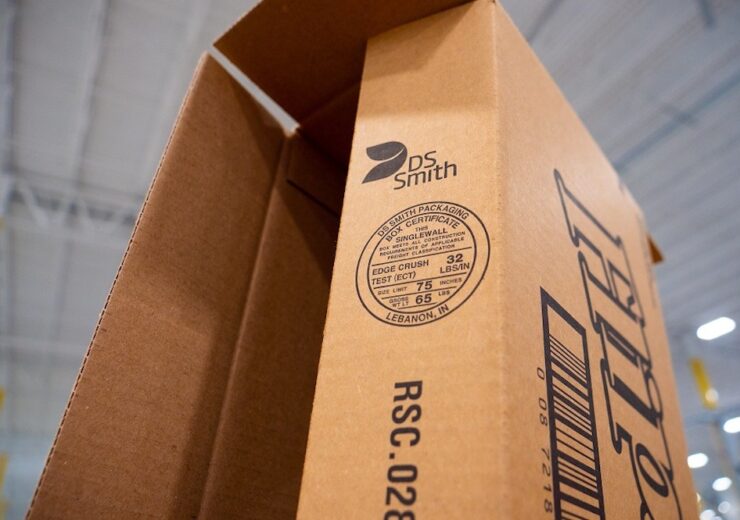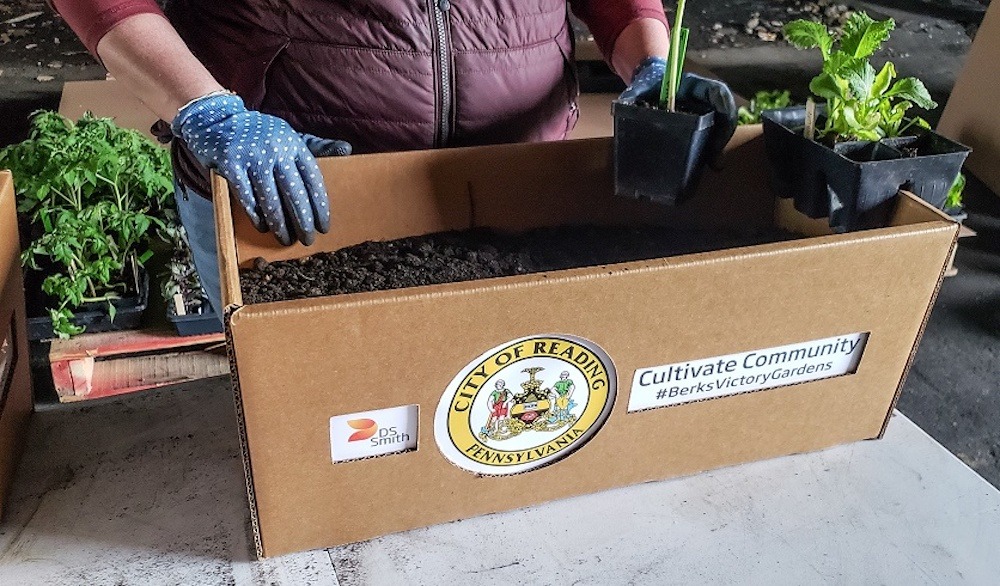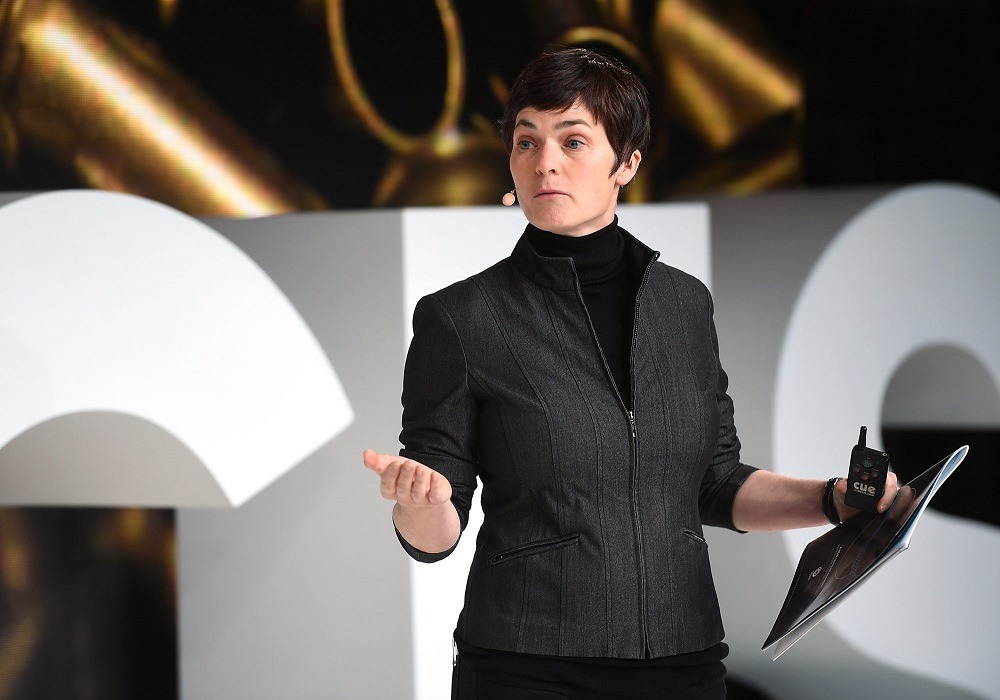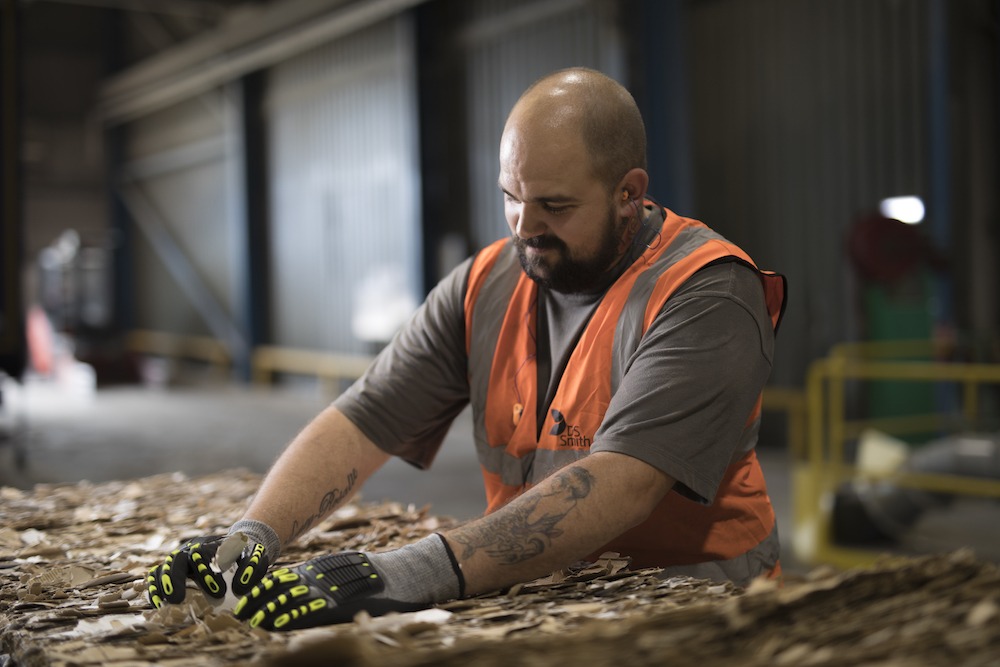Packaging giant DS Smith is aiming to hit four UN Sustainable Development Goals, which include climate action and life on land

As a company, DS Smith is made up of three divisions - paper, packaging and recycling (Credit: DS Smith)
Packaging business DS Smith says it has met three of its 2020 sustainable development targets.
The UK-based firm’s objectives focused on CO2 reduction, supporting the communities where it operates, and responsible paper sourcing as part of its long-term strategy.
It also achieved an 11% cut in emissions in 2019 when compared to 2015 on a like-for-like basis.
The announcement follows DS Smith’s recent recognition as a sustainability leader by environmental bodies the CDP and ISS.
It also coincides with the company publishing its Redefining Packaging for a Changing World sustainability report.
DS Smith Group CEO Miles Roberts said: “Our purpose of Redefining Packaging for a Changing World has never felt more appropriate and as a leading supplier of sustainable packaging solutions, we can and must do more to tackle some of the great challenges our communities and environment are facing.
“These targets embed sustainability across our entire business and are focused on the areas where we believe we can have the greatest impact; using innovative packaging to make supply chains more efficient, reducing our environmental impact and being responsible for our people and the communities in which we operate.”
DS Smith builds on its community programme during Covid-19
The company has ensured that all sites accounting for 90% of its energy consumption are ISO 50001 certified.
This is an international standard recognising organisations that enhance their energy performance by implementing an energy management systems based on a model of continual improvement.
It’s also part of the company’s broader pledge to reduce CO2e emissions by 30% per tonne of production by 2030.

During Covid-19, it’s been using its community programmes by adding support beyond education and sustainability initiatives.
All of its sites with more than 50 people now have community programmes, growing from 81% in 2018-19.
These include donating cardboard furniture to Spanish field hospitals and creating scrubs for public healthcare workers in the UK.
The company has also met its commitment to get 100% of its fibres from sustainable sources — using only recycled, chain, or custody certified papers.
Alongside this, 98% of DS Smith’s packaging is currently reusable or recyclable — with the firm working to reach 100% by 2025.
In an open letter published as part of the company’s sustainability report, its group finance director Adrian Marsh said: “As sustainability becomes increasingly embedded into strategy, key to business reputation and central risk and continuity, investors are looking ever closer at how companies manage risks and capitalise on opportunities.”
DS Smith and its work to push forward a circular economy
As part of its sustainable development work, DS Smith’s recycling, paper and packaging divisions are working together to drive fibre around a circular corrugated system.
It does this by harvesting quality paper and cardboard for recycling from a range of sectors — including retailers, manufacturers and local authorities — which provides raw materials for its 12 recycled paper mills.
These recycled products then become the primary raw material for the firm’s packaging site.

Currently, the fibre part of its circular corrugated system can be recycled up to 25 times, keeping the fibres in the system and creating significant value after use.
Alongside this, 75% of the papers used are made from recycled fibres sourced from one its network of recycled paper mills across Europe and North America, or from third parties.
When the recycled fibres become too short to create viable material, the firm works with farmers to spread them on the land — providing a natural fertiliser that helps to regenerate natural systems.
DS Smith’s partnership with the Ellen MacArthur Foundation to boost its sustainable development
In May 2019, DS Smith became circular economy charity the Ellen MacArthur Foundation’s 11th strategic partner.
Almost one year on, DS Smith launched its Circular Design Principles — which was developed in collaboration with the foundation.
The individual principles have been created to help companies design reuse and recyclability into their packaging.
Speaking at the time, DS Smith’s packaging CEO Stefano Rossi said: “There is an undeniable desire from the public to help with the climate crisis, but a lot of packaging is still not recyclable, and people are confused about what packaging goes into which bin.
“We have launched our Circular Design Principles to help companies evolve to meet the needs of the public.

“By introducing this set of principles, we can design for recyclability, design out waste and pollution, create packaging suited to a circular economy and make it easier to provide labelling to help consumers recycle more.”
The company outlined five design principles that have developed to design out waste, keep products and materials in use, and regenerate natural systems.
These are:
- Protect the brands and products
- Use no more materials than necessary
- Design for supply-cycle efficiency
- Keep packaging materials in use
- Empower designs to find better ways of making packaging
DS Smith looking to hit four UN Sustainable Development Goals
In September 2015, 17 of the United Nations’ (UN) Sustainable Development Goals were adopted by world leaders.
Part of the 2030 Agenda for Sustainable Development, they’re a collection of global goals designed to be a “blueprint to achieve a better and more sustainable future for all”.
DS Smith has highlighted four Sustainable Development Goals that are most relevant to its business model – these being responsible consumption and production, life on land, climate action, and decent work and economic growth.
As part of its responsible consumption and production work, the company’s waste services provide integrated recycling and waste management for all materials on behalf of retailers, manufacturers and local authorities.

Recycling six million tonnes of waste, the firm aims to ensure that materials stay in use for as long as possible.
DS Smith has also become a member of the Forest Stewardship Council International, which promotes environmentally appropriate, socially beneficial, and economically viable management of the world’s forests.
Its membership will enable the business to contribute to strengthening the world’s leading forest management certification programme.
In order to reduce stress on water resources and take climate action, the firm has partnered with chemical supplier Buckman in several mills to alter its chemical mix, enabling more water recirculation and less starch waste.
As part of its contribution to decent work and economic growth, DS Smith has been inspiring sustainable learning through school and community interaction across Europe – educating the next generation on recycling, the circular economy and sustainability.
